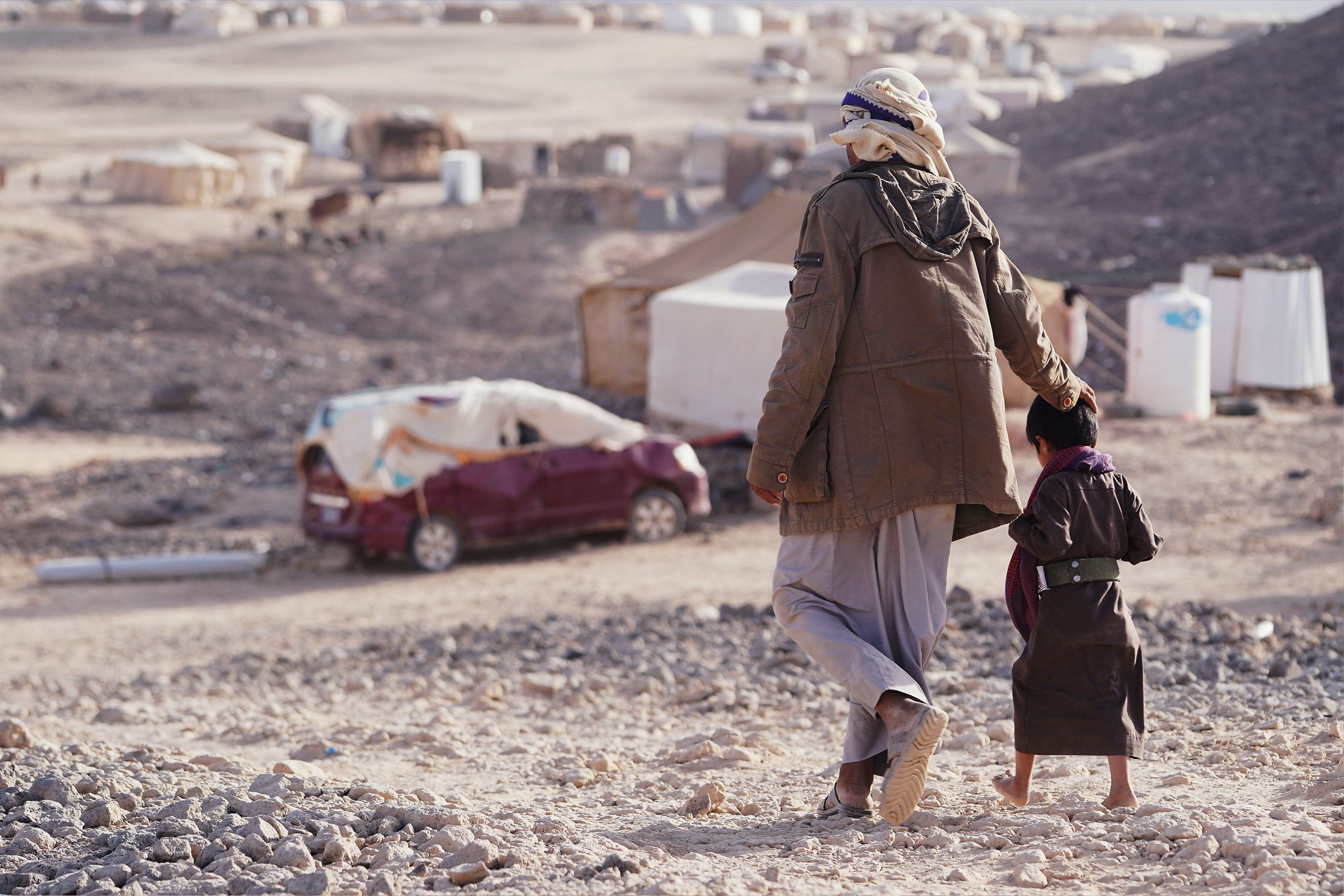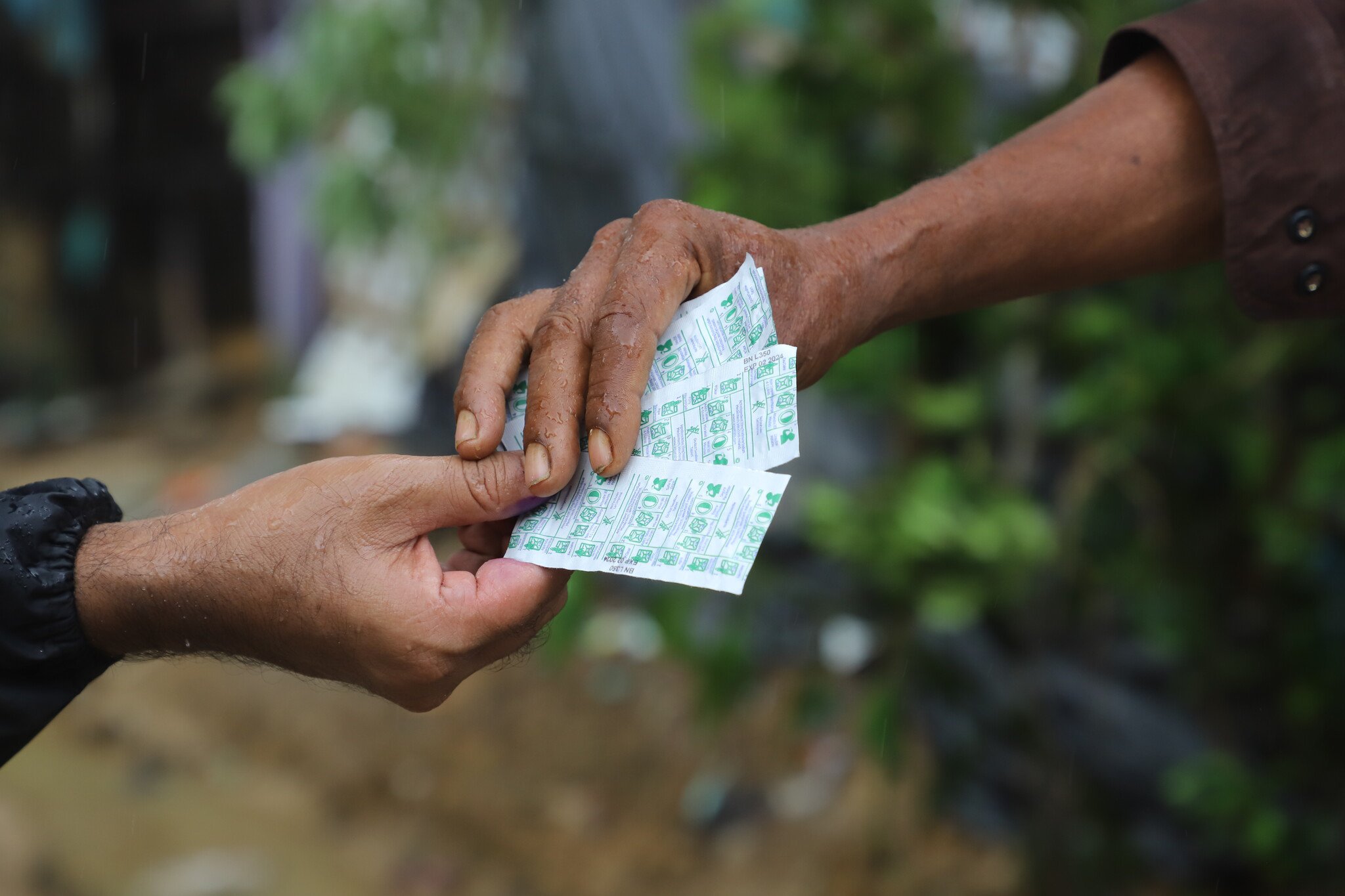Here’s a brief update on some of the emergency work Oxfam supporters made possible this year.
Since March 2020 Oxfam has worked with 694 local partners to reach 14.33 million people in more than 60 countries and the US to prevent the spread of COVID-19 and support people’s basic food needs and livelihoods. During this time, we also advocated for a mass-produced, fairly distributed coronavirus vaccine that is available to every individual, rich and poor alike: a People’s Vaccine.
In India in April and May 2021 the Delta variant of the disease spread through the country, affecting our partners, Oxfam staff, and millions of others. Oxfam India was already providing cash, food, and hand-washing stations for migrant laborers stuck without money, housing, food, or transport options. As the Delta variant surged, Oxfam continued to provide food (more than half a million rations and food packs) and hygiene items to people, while also delivering medical equipment to more than 100 hospitals and health centers, including gas cylinders, beds, and protective equipment. We also advocated for the government to help migrant workers returning to home villages with no jobs, and to reduce the vulnerability of women to domestic violence. Oxfam is active in 16 Indian states.
Ongoing emergencies
In the meantime, Oxfam has also continued its response to humanitarian emergencies all over the globe, work made even more difficult owing to increased costs, prevention measures that limit staff movements, and the threat of infection. More than half of the people Oxfam is helping are women and girls, who have been disproportionately affected by COVID.

Yemen: Oxfam has assisted three million people affected by the war in Yemen since 2015, providing water and sanitation assistance, cash, and food. This past year, fighting in the area around Marib has displaced more than a million people (75 percent of whom are women and children), who now seek shelter in camps in areas prone to flooding and sandstorms. Oxfam has assisted 14,000 people in Marib, delivering cash to more than 2,000 families and desludging 55,000 liters of sewage from latrines each day.
Ethiopia: Since conflict broke out in the northern Tigray region in November 2020, Oxfam has been providing water, sanitation, and hygiene items to people displaced by fighting. Oxfam is calling on all parties to observe a cease-fire, prioritize the safety of civilians, re-establish public services, and grant aid agencies unconditional and safe access to help those at risk of severe hunger. So far, Oxfam and partners have reached nearly 85,000 people, and plan to assist 400,000.
Bangladesh: Since Rohingya Muslims fleeing violence came over the border from Myanmar in 2017, Oxfam and partners in Bangladesh have been assisting people living in extremely overcrowded conditions. Expanding on our mission to provide clean water and sanitation, Oxfam and its local partners stepped up hygiene promotion starting in 2020. We also produced clean water for more than 20,000 people who survived a fire in one section of the Kutupalong refugee camp in April 2021. When heavy rains in July flooded water treatment systems and latrines, Oxfam made repairs and distributed hygiene kits.
Sudden emergencies
Oxfam and key local groups we collaborate with still must help people when conflict, storms, earthquakes, and other sudden disasters hit, even when assets and resources are already committed to long-term programs. Here are just a couple of examples:
Beirut: In August 2020, a warehouse storing ammonium nitrate in Beirut’s port exploded and killed more than 200 people, injured 7,000, and displaced 300,000. Oxfam, already committed to assisting Syrian refugees and host communities in eastern Lebanon, turned to the capital city and recruited 11 new partner organizations to provide cash, food, reconstruction assistance, and other help for vulnerable disabled people, women, and LGBTQ people affected by the blast. Oxfam’s partners continue to assist more than 10,000 people as they recover from the explosion amid the political and economic collapse in Lebanon.

Gaza: In May 2021 rocket attacks and shelling in the Occupied Palestinian Territory and Israel led to widespread damage in Gaza. Bombing reduced entire apartment blocks to rubble, destroyed roads, knocked out water and power systems, and damaged clinics and schools. Nearly 450,000 people in Gaza needed humanitarian assistance, and more than 100,000 people were displaced. When it was safe enough to do so, Oxfam worked with local aid groups in Gaza to provide blankets and mattresses, hygiene items, and the chemicals needed to operate three sea water desalination plants that provide drinking water for 400,000 people. Oxfam also provided cash to farming families to help them restart their work, and we plan to repair water and sanitation systems at 19 schools.
These are just a few of the crises Oxfam is working on in collaboration with local groups. Contributions from people like you are making this work possible, and we thank you for your support.
